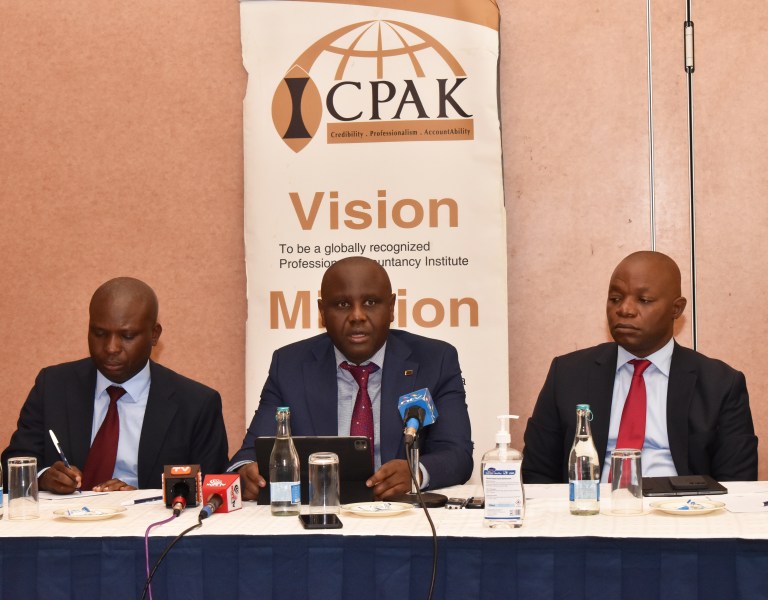The Institute of Certified Public Accountants of Kenya (ICPAK) has expressed concern that the ongoing fuel crisis in the country has continued to affect productivity in key sectors of the economy.
ICPAK Chairman George Mokua implored the government to urgently engage stakeholders in the petroleum sector to address the shortage and avert adverse multiplier effects in other sectors of the economy.
“I would like to urge the government to swiftly address the current fuel shortage and put measures to avert fuel shortages in future,” he said.
Briefing the press on reflections on the fiscal budget, Mokua said that according to data from the Kenya National Bureau of Statistics (KNBS), the overall year inflation rate as measured by the Consumer Price Index has risen to 5.56 per cent as of March 2022 compared to 5.1 per cent in February 2022.
The chairman stated that with such a rise in inflation, the Institute urges the government to continue introducing measures that cushion citizens, such as a reduced VAT rate for basic and essential commodities.
Mokua noted that while appreciating the Government’s need to mobilize domestic revenue, the proposal to amend the Tax Appeals Tribunal Act, 2013 to require a deposit of 50 per cent of the disputed tax revenue in a special account at the Central Bank of Kenya before a taxpayer can appeal a decision of the Tribunal requires further discussion and stakeholder engagement.
The Chairman applauded the government for robust measures to tackle the pending bills problem and appealed to the two levels of government to adhere to the prescribed timeline of 30th June 2022 to settle all pending bills.
“The Institute implores upon Parliament to enact the Prompt Payment Bill, 2021 to curb future delays and ensure businesses not only survive but thrive and make their rightful contribution to the exchequer,” he said.
In his remarks, ICPAK Chief Executive Officer Edwin Makori stated that in spite of hiked fuel prices owing to the global supply chain challenges, the government ought to engage relevant stakeholders and prevent adverse multiplier effects.
At the same time, ICPAK Vice Chairman Philip Kakai stressed the importance of a good tax policy offering a tax system that is attractive to investors, while at the same time raising revenues to support the key pillars of a business-enabling environment such as the provision of security and infrastructure.
Kakai also noted that the institute will continue to laud and commend the government for supporting its measures geared toward uplifting and protecting the local industry and safeguarding livelihoods.
By Fred Odanga Azelwa.
